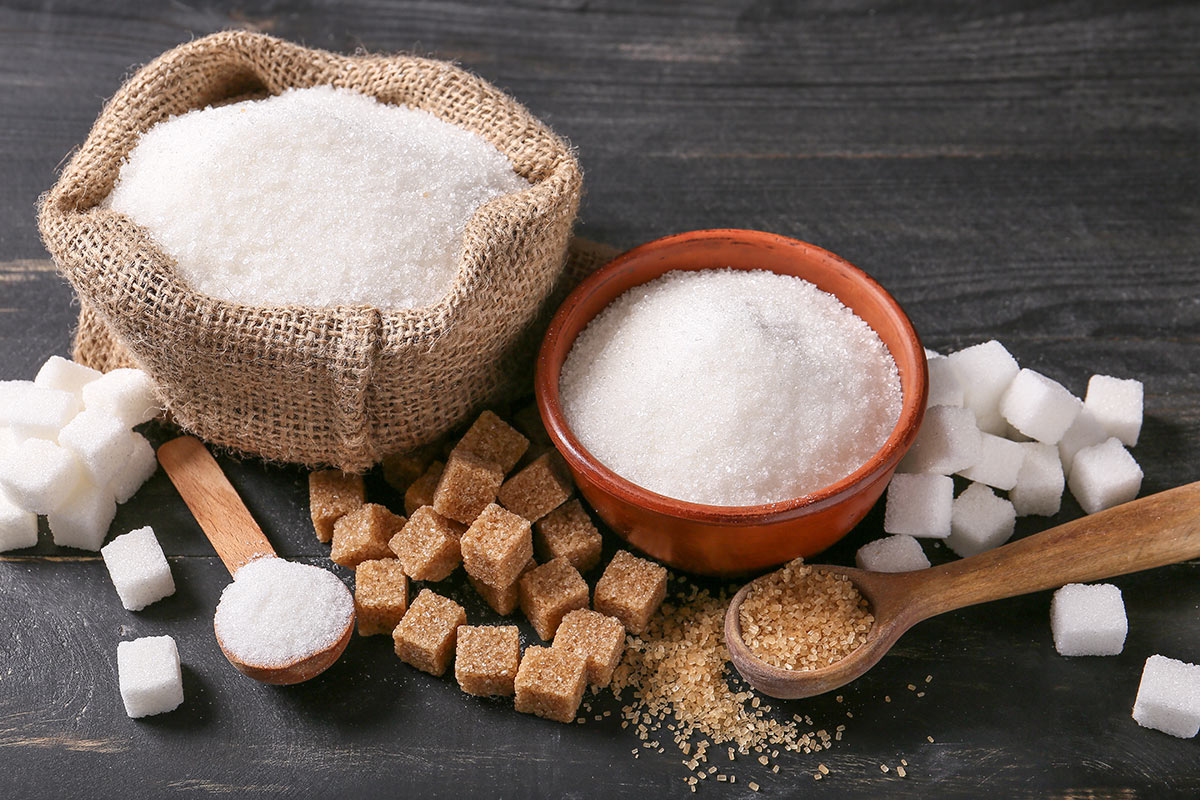
SUGAR vs ARTIFICIAL SWEETENERS: THE PROS & CONS
GUEST POST BY JENNIFER GIBBS
Our food environment is, in a word, toxic. There are myriad factors contributing to this—from hormone and antibiotic-laced meat to thousands of preservatives whose long-term effects can’t be quantified. For our purposes here, we’ll focus just on sugar—which isn’t just in candy and soda, but has wormed its way into thousands of other pre-packaged items from bread to condiments. Sugar is seemingly everywhere and in everything. And not only does regular sugar intake lead to problems such as high cholesterol (yeah, it even messes with your cholesterol levels) and diabetes, but they also increase blood sugar levels, which in turn results in a peak and then crash in energy, leaving us feeling perpetually tired.
Artificial sweeteners have been developed as an alternative, with the aim of providing sweetness without the calories. But should we have any concerns about them? What exactly are the pros and cons of using artificial sweeteners in comparison with natural sugars? Let’s discuss.
DIFFERENT TYPES OF SUGAR & WEETENERS
Some of the language around sugar can be confusing, because more often than not, it’s all just called ‘sugar’. However, there are several different categories to be aware of:
• Natural sugar. This is found in fruits and vegetables, as well as non-processed carbohydrates like brown rice and whole wheat pasta. It can also be found in dairy products (ie, lactose).
• Refined sugar. This may have started off naturally, but it’s been processed so that there’s only sugar left, not the rest of the plant. For example, granulated sugar.
• Artificial sweeteners. These are synthetic sugar substitutes, which were primarily designed to make food taste sweeter, but without the calories. They come in a variety of forms, such as saccharin, aspartame, and sucralose.
• Natural sweeteners. These are sweeteners that have come from the natural world, but have gone through a refinement process to get in the bottle. This includes honey, agave nectar, and molasses.
PROS OF SUGAR
Natural sugars are by far the best for our health. As they’re found in fruits and vegetables, eating these items also provides essential nutrients like fibre, vitamins, and minerals. Long-term, consuming natural sugars in moderation can help reduce the risk of various chronic diseases such as obesity, type 2 diabetes, and cancer.
It’s important to also note that sugar does give us energy – while it’s important to control how much we’re eating, there’s no need to cut it out completely. Eaten in moderation, it can be part of a balanced diet.
PROS OF ARTIFICIAL SWEETENERS
Sugar, natural or refined, can lead to weight gain. Artificial sweeteners were designed to offer the sweet taste without the calories, which may help people who are used to consuming a lot of sugar reduce their intake without cutting it out in one go. Additionally, they don’t actually raise the sugar levels in our blood, meaning that they may be beneficial for avoiding sugar highs and crashes.
CONS OF SUGAR
It’s no secret that excessive sugar consumption is bad for us, and can affect many different aspects of our general health and wellbeing. It’s been linked to a plethora of different chronic health conditions, including cancer, hypertension, obesity, and depression.
On top of the risks associated with our minds and bodies, sugar consumption can be detrimental to our dental health, as it interacts with the natural bacteria in our mouths to form an acid and accelerate tooth decay. Make sure you’re aware of your sugar consumption, and take the necessary steps to reduce it if necessary, to lower your risk of these serious health complications.
CONS OF ARTIFICIAL SWEETENERS
While these substitutes are often seen as a healthier alternative to sugar, there are potential risks associated with their consumption. Artificial sweeteners have been linked to increased appetite and even disrupted gut bacteria.
Furthermore, certain types of artificial sweeteners such as aspartame have been associated with headaches (for some people) and dizziness. While more research is needed to fully understand the long-term effects of artificial sweeteners, it is important to try and reduce your overall consumption.
CONCLUSION
It’s really hard to completely cut out artificial sweeteners. They’re in so many things that we eat, and the mental health benefits of indulging your sweet tooth now and then can’t be underestimated. However, it is important to try and reduce your intake where you can.
If you’ve got a particularly sweet tooth, then try incorporating foods that contain natural sugar, like dates or peanut butter (made from 100% nuts) spread over apple slices into your diet. Over time, these snacks may give you the sugar hit that you’re looking for.
Guest posts may contain affiliate links.

